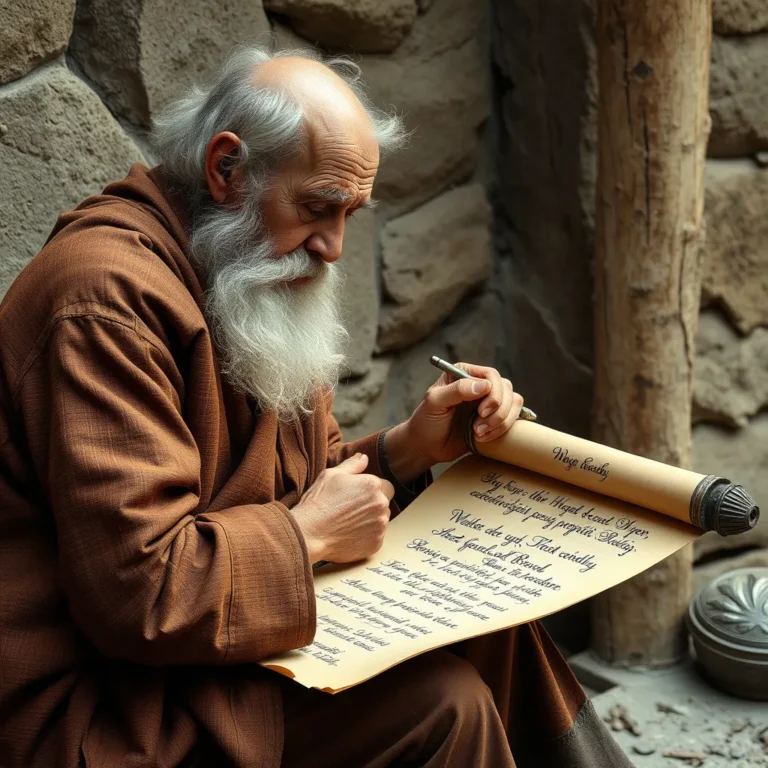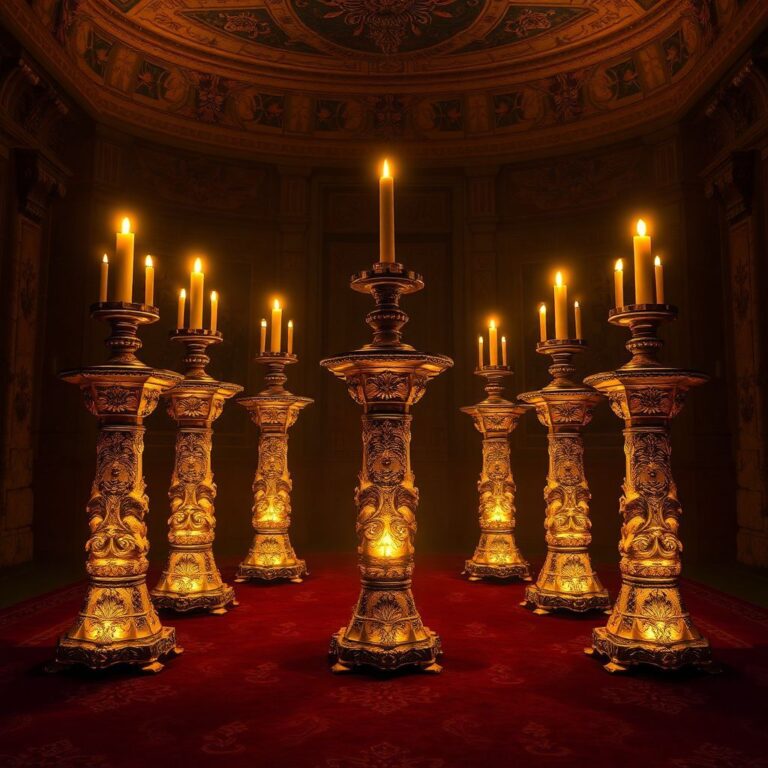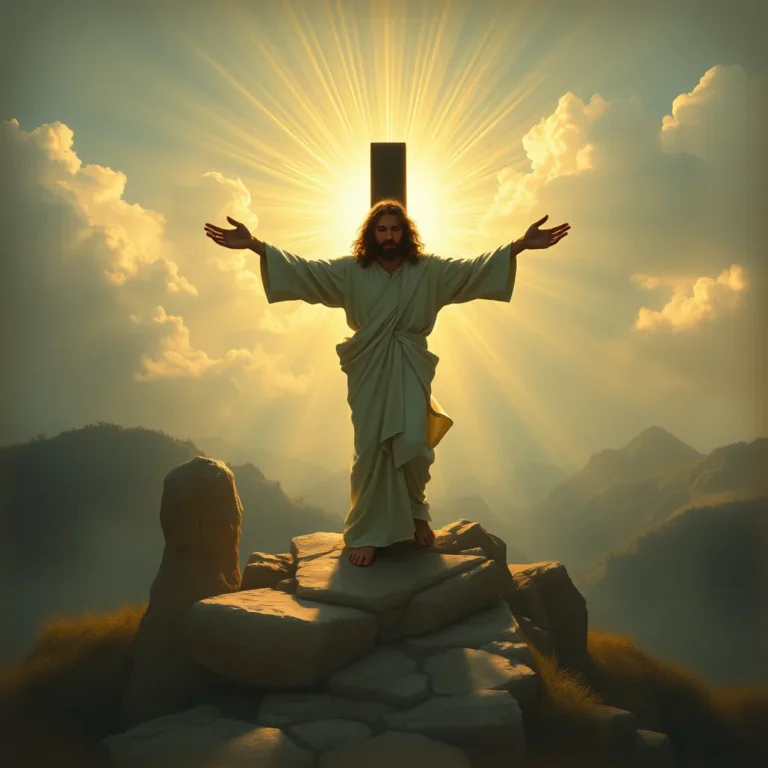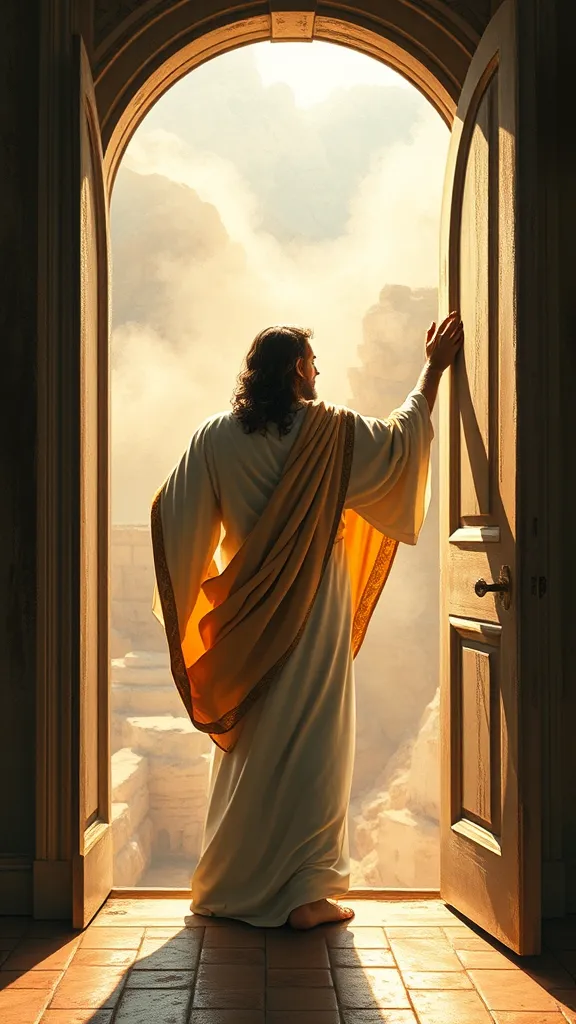
The Revelation is Sent to the Church in Laodicea
(*All Bible verses are from the NIV unless otherwise noted)
Chapter 3
14 “To the angel of the church in Laodicea write: These are the words of the Amen, the faithful and true witness, the ruler of God’s creation.
15 I know your deeds, that you are neither cold nor hot. I wish you were either one or the other!
16 So, because you are lukewarm—neither hot nor cold—I am about to spit you out of my mouth.
17 You say, ‘I am rich; I have acquired wealth and do not need a thing.’ But you do not realize that you are wretched, pitiful, poor, blind and naked.
18 I counsel you to buy from me gold refined in the fire, so you can become rich; and white clothes to wear, so you can cover your shameful nakedness; and salve to put on your eyes, so you can see.
19 Those whom I love I rebuke and discipline. So be earnest and repent.
20 Here I am! I stand at the door and knock. If anyone hears my voice and opens the door, I will come in and eat with that person, and they with me.
21 To the one who is victorious, I will give the right to sit with me on my throne, just as I was victorious and sat down with my Father on his throne.
22 Whoever has ears, let them hear what the Spirit says to the churches.”
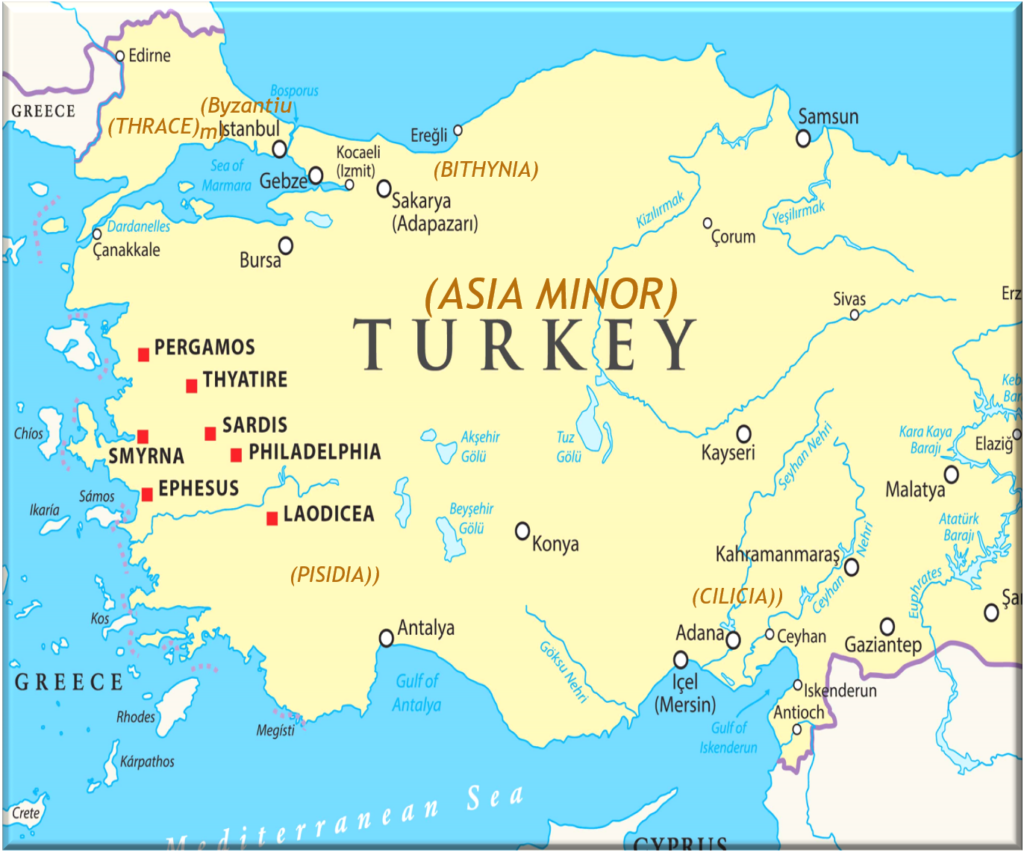
Rev 3:14
To the angel of the church in Laodicea:
Laodicea (Lao-deek-ia), which is now known as Latakia in Syria, means “Justice of the people” in Greek. It was the last church addressed in the book of Revelation. The city was founded by Antiochus II Theos between 261-253 BC in honor of his wife Laodice. It is believed that the city was built on the site of an older town.
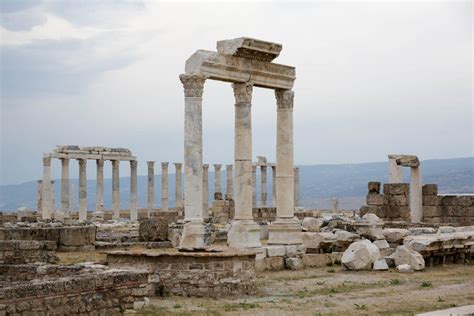
The city was situated near the Lycos River and was famous for its commercial, manufacturing, and educational institutions. Moreover, it was located close to the center of the Angora goat country. The glossy black Angora wool was used to manufacture fine cloth and carpets, which were highly valued in the ancient world1.
One of its medical schools specialized in eye diseases and developed Phrygian powder to make an eye salve2. Col 4:15-16 suggests that Paul wrote a letter to the Laodiceans, which has been lost to us.
Rev 3:14
These are the words of the Amen:
Strong’s Concordance defines the Hebrew and Greek words amen as meaning sure, faithfulness, truly, so be it (Strong’s H543, G281).
Deut 27:15 “Cursed is anyone who makes an idol—a thing detestable to the LORD, the work of skilled hands—and sets it up in secret.” Then all the people shall say, “Amen!” 16 “Cursed is anyone who dishonors their father or mother.” Then all the people shall say, “Amen!” 17 “Cursed is anyone who moves their neighbor’s boundary stone.” Then all the people shall say, “Amen!”
Rev 3:14
The faithful and true witness, the ruler of God’s creation:
Col 1:15 The Son is the image of the invisible God, the firstborn over all creation. 16 For in him all things were created: things in heaven and on earth, visible and invisible, whether thrones or powers or rulers or authorities; all things have been created through him and for him. 17 He is before all things, and in him all things hold together. 18 And he is the head of the body, the church; he is the beginning and the firstborn from among the dead, so that in everything he might have the supremacy.
Rev 3:15-16
I know your deeds, that you are neither cold nor hot. I wish you were either one or the other! 16 So, because you are lukewarm—neither hot nor cold—I am about to spit you out of my mouth:

Imagine the comfort of a hot drink on a frigid winter’s day or a refreshing cold drink in mid-summer’s heat, contrasted against a tepid, room-temperature drink in either season. This church was given no commendations. Their spiritual apathy was like warm water. In modern terms, we might use the terms straddling or riding the fence on important issues.
At times, the lack of spiritual confidence and Biblical literacy has caused Christians to avoid making discerning choices for fear of being labeled judgmental or dogmatic. Instead, they may become almost apathetic or disinterested altogether! Believers who fail to take responsible stands on important issues face a host of dangers.
However, when choosing to take a firm stand, believers must discern the difference between core foundational Biblical truths and issues of tradition or procedure; between moral issues and political preferences.
Think about some of the important issues facing the modern Church, such as:
- So-called conservative or liberal politics;
- LGBTQ+ and gender identity;
- Abortion;
- Gay marriage;
- The rights of women and minorities;
- Racism.
Remember the discussion on the balance between tolerance, compassion, patience, Biblical truths, and obedience? Christians must learn to take a stand on ethical and moral issues without judging and condemning others.

Loving someone and being respectful, patient, and compassionate is not equivalent to condoning their immoral behavior or erroneous beliefs!
Christians have never been called to be violent or militant. Christians have never been called to act out in a rage or hurtful behavior. How do believers take a firm stand on Godly principles and remain loving and kind?
These questions can only be answered by seeking the Holy Spirit of Truth, who motivates us to ask, seek, and knock (Matt 7:7, Luke 11:9, Rev 3:20). If a believer is neither hot nor cold – a Fence rider – on important issues, they likely not even asking the questions.
Consider again, Mark 12:28-31:
One of the teachers of the law came and heard them debating. Noticing that Jesus had given them a good answer, he asked him, “Of all the commandments, which is the most important?”29 “The most important one,” answered Jesus, “is this: ‘Hear, O Israel: The Lord our God, the Lord is one. 30 Love the Lord your God with all your heart and with all your soul and with all your mind and with all your strength.’31 The second is this: ‘Love your neighbor as yourself.’ There is no commandment greater than these.”
As believers navigate the waters of Christian truths and relationships, the “keel” that keeps our boat upright is the uncompromising love of God and others!
Rev 3:17
You say, `I am rich … But you do not realize that you are wretched, pitiful, poor, blind and naked:
Laodicea on the Lycus River (modern-day Denizli, Turkey) was a wealthy city during the Roman period. It was famous for, among other things, the luxurious black wool used to manufacture tunics called trimata3. The clothing became so well-known that the city was sometimes called Trimataria4. Even today, the most significant source of income of the Denizli Province is the clothing industry5.
However, the Lord describes them as pitiful and poor compared to the materially poor but spiritually rich saints in Smyrna (Rev 2:9). The believers in Laodicea may have allowed their concern for their own wealth to dilute the Gospel message.
Matt 25:43 I was a stranger and you did not invite me in, I needed clothes and you did not clothe me, I was sick and in prison and you did not look after me.’
Rev 3:18
Buy from me gold refined in the fire so you can become rich:
Matt 6:19-21 “Do not store up for yourselves treasures on earth, where moths and vermin destroy, and where thieves break in and steal. 20But store up for yourselves treasures in heaven, where moths and vermin do not destroy, and where thieves do not break in and steal. 21For where your treasure is, there your heart will be also
Psalms 12:6 And the words of the LORD are flawless,like silver purified in a crucible,like gold refined seven times.
Rev 3:18
And white clothes to wear so you can cover your shameful nakedness:
Ezek 16:8-10 …I spread the corner of my garment over you and covered your naked body. I gave you my solemn oath and entered into a covenant with you, declares the Sovereign LORD, and you became mine. 9 “ ‘I bathed you with water and washed the blood from you and put ointments on you. 10 I clothed you with an embroidered dress and put sandals of fine leather on you. I dressed you in fine linen and covered you with costly garments.
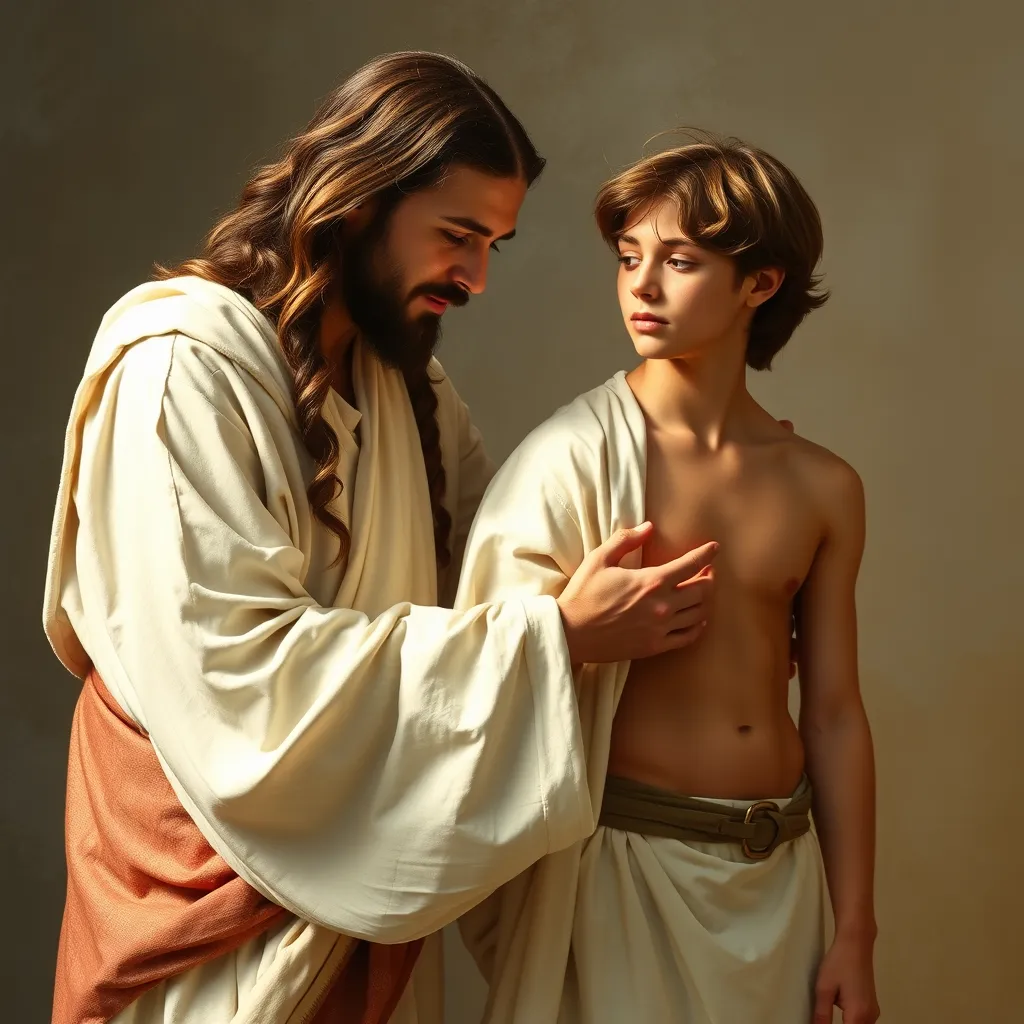
Eccl 9:8 Always be clothed in white, and always anoint your head with oil.
Ps 30:11 You turned my wailing into dancing; you removed my sackcloth and clothed me with joy,
Isa 61:10 I delight greatly in the LORD; my soul rejoices in my God. For he has clothed me with garments of salvation and arrayed me in a robe of his righteousness, as a bridegroom adorns his head like a priest, and as a bride adorns herself with her jewels.
1John 1:9 If we confess our sins, he is faithful and just and will forgive us our sins and purify us from all unrighteousness.
Rev 3:18
And salve to put on your eyes, so you can see:
Ancient Laodicea had several medical schools. Its most famous remedies were ointments made from spice nard, which strengthened the ears, and Phrygian powder, obtained by crushing Phrygian stone, which was used as a salve for sore eyes6. Unfortunately, the wealth and ease of Laodicean life seem to have lulled the saints into an apathetic approach to their new faith.
Matt 6:22 “The eye is the lamp of the body. If your eyes are healthy, your whole body will be full of light. 23But if your eyes are unhealthy, your whole body will be full of darkness. If then the light within you is darkness, how great is that darkness! 24“No one can serve two masters. Either you will hate the one and love the other, or you will be devoted to the one and despise the other. You cannot serve both God and money.
Matt 13:15 For this people’s heart has become calloused; they hardly hear with their ears, and they have closed their eyes. Otherwise they might see with their eyes, hear with their ears, understand with their hearts and turn, and I would heal them.’
Rev 3:19
Those whom I love I rebuke and discipline:
We often think of rebuke as a harsh criticism for being wrong. The Greek word used here for rebuke is elegcho (e-leng’-cho), meaning to explain right from wrong, admonish, convict, and convince7. This is the very work of the Holy Spirit:
John 14:16 And I will ask the Father, and he will give you another advocate to help you and be with you forever—
John 16:13 But when he, the Spirit of truth, comes, he will guide you into all the truth. He will not speak on his own; he will speak only what he hears, and he will tell you what is yet to come.
John 16:8 When he comes, he will prove the world to be in the wrong about sin and righteousness and judgment.
To discipline (Greek, paideuo), means far more than just punishment! It means to train up (as a child), to educate, instruct, teach8. Again, the work of the Holy Spirit:
Prov 3:11 My son, do not despise the LORD’s discipline, and do not resent his rebuke, 12 because the LORD disciplines those he loves, as a father the son he delights in.
Prov 6:23 For this command is a lamp, this teaching is a light, and correction and instruction are the way to life,
Psa 94:12 Blessed is the one you discipline, LORD,the one you teach from your law;
Heb 12:10 They disciplined us for a little while as they thought best but God disciplines us for our good, in order that we may share in his holiness. 11 No discipline seems pleasant at the time, but painful. Later on, however, it produces a harvest of righteousness and peace for those who have been trained by it.
Rev 3:19
So be earnest, and repent:
Review your notes on Rev 2:22, and the Greek word repent, metanoeo (me-ta-no-e’-o), which means to have a change of mind and heart9. To be earnest or zealous is the direct opposite of being lukewarm! Christ calls all of us to lose no more time, spare no effort, and open ourselves to the healing work of the Holy Spirit, who can redirect our natural tendency of selfish ambition to selfless love of others and God, from lukewarm religion to impactful ministry to others!
2Cor 7:10 Godly sorrow brings repentance that leads to salvation and leaves no regret, but worldly sorrow brings death.
2Pet 3:9 The Lord is not slow in keeping his promise, as some understand slowness. Instead he is patient with you, not wanting anyone to perish, but everyone to come to repentance.
1Pet 4:10 Each of you should use whatever gift you have received to serve others, as faithful stewards of God’s grace in its various forms.
Rev 3:20
Here I am! I stand at the door and knock:

Matt 7:7 “Ask and it will be given to you; seek and you will find; knock and the door will be opened to you. 8 For everyone who asks receives; the one who seeks finds; and to the one who knocks, the door will be opened. 9 “Which of you, if your son asks for bread, will give him a stone?10 Or if he asks for a fish, will give him a snake? 11 If you, then, though you are evil, know how to give good gifts to your children, how much more will your Father in heaven give good gifts to those who ask him!
Rev 3:20
If anyone hears my voice I will come in and eat with him, and he with me:
Ezek 37:14 I will put my Spirit in you and you will live, and I will settle you in your own land. Then you will know that I the LORD have spoken, and I have done it, declares the LORD.’
John 10:27 My sheep listen to my voice; I know them, and they follow me. 28 I give them eternal life, and they shall never perish; no one will snatch them out of my hand. 29 My Father, who has given them to me, is greater than all; no one can snatch them out of my Father’s hand. 30 I and the Father are one.”
John 4:10 Jesus answered her, “If you knew the gift of God and who it is that asks you for a drink, you would have asked him and he would have given you living water.”
John 14:16 And I will ask the Father, and he will give you another advocate to help you and be with you forever— 17 the Spirit of truth. The world cannot accept him, because it neither sees him nor knows him. But you know him, for he lives with you and will be in you.
John 15:4 Remain in me, as I also remain in you. No branch can bear fruit by itself; it must remain in the vine. Neither can you bear fruit unless you remain in me. 5 “I am the vine; you are the branches. If you remain in me and I in you, you will bear much fruit; apart from me you can do nothing. 6 If you do not remain in me, you are like a branch that is thrown away and withers; such branches are picked up, thrown into the fire and burned. 7 If you remain in me and my words remain in you, ask whatever you wish, and it will be done for you. 8 This is to my Father’s glory, that you bear much fruit, showing yourselves to be my disciples.
Rev 3:21
To the one who is victorious, I will give the right to sit with me on my throne:
Matt 25:34 “Then the King will say to those on his right, ‘Come, you who are blessed by my Father; take your inheritance, the kingdom prepared for you since the creation of the world.
Rom 8:14-17 For those who are led by the Spirit of God are the children of God. 15The Spirit you received does not make you slaves, so that you live in fear again; rather, the Spirit you received brought about your adoption to sonship. And by him we cry, “Abba, Father.” 16The Spirit himself testifies with our spirit that we are God’s children. 17Now if we are children, then we are heirs—heirs of God and co-heirs with Christ, if indeed we share in his sufferings in order that we may also share in his glory.
Rev 5:10 You have made them to be a kingdom and priests to serve our God,and they will reign on the earth.”
Eph 1:18 I pray that the eyes of your heart may be enlightened in order that you may know the hope to which he has called you, the riches of his glorious inheritance in his holy people…
Rev 3:21
Just as I was victorious and sat down with my Father on his throne:
Acts 7:55 But Stephen, full of the Holy Spirit, looked up to heaven and saw the glory of God, and Jesus standing at the right hand of God.
Heb 1:1 In the past God spoke to our ancestors through the prophets at many times and in various ways, 2 but in these last days he has spoken to us by his Son, whom he appointed heir of all things, and through whom also he made the universe.
SUMMARY FACTS CONCERNING THE SEVEN CHURCHES (as of 2018)10:
- Ephesus: Once the fourth largest city in the Roman Empire, is now the town of Selcuk, Turkey, and has one small Protestant church.
- Smyrna: Modern Izmir, Turkey, has over five hundred Christians and twelve churches.
- Pergamum: No Christians live in present-day Bergama, Turkey.
- Thyatira: The city of Akhisar has no church.
- Sardis: No Christians live in the town of Sart.
- Philadelphia: Presently, no known Christians reside in the city of Alasehir, “The city of Allah”.
- Laodicea: As of 2018, four or five Christians live in present-day Denizli.
Footnotes
- Black Angora wool, wikipedia.org/wiki/Laodicea_on_the_Lycus; Retrieved December 14, 2021. ↩︎
- Ibid. ↩︎
- Laodicea: Turkish Archeological News, https://turkisharchaeonews.net/site/laodicea-lycus, accessed Jan 3, 2024. ↩︎
- Ibid. ↩︎
- Ibid. ↩︎
- Hastings, James. Entry for ‘Laodicea’. Hastings’ Dictionary of the Bible. https://www.studylight.org/dictionaries/eng/hdb/l/laodicea.html. 1909, accessed Jan. 3, 2024. ↩︎Strong’s G1651. ↩︎
- Strong’s G1651. ↩︎
- Strong’s G3809. ↩︎
- Strong’s G3340. ↩︎
- Where are they Now? The 7 churches of Revelation rediscovered: The Metro Voice, June 14, 2018, https://metrovoicenews.com/where-are-they-now-the-7-churches-of-revelation-rediscovered/, accessed Dec 15, 2021. ↩︎
*All Scripture quotations, unless otherwise indicated, are taken from the Holy Bible, New International Version®, NIV®. Copyright ©1973, 1978, 1984, 2011 by Biblica, Inc.™ Used by permission of Zondervan. All rights reserved worldwide. www.zondervan.comThe “NIV” and “New International Version” are trademarks registered in the United States Patent and Trademark Office by Biblica, Inc.™

